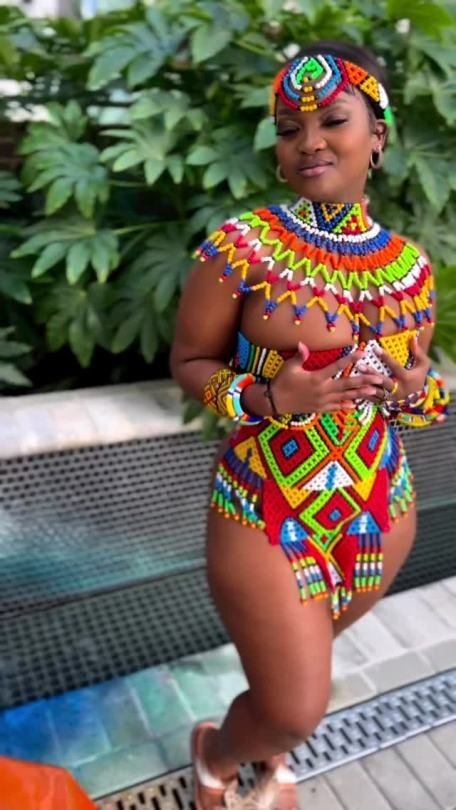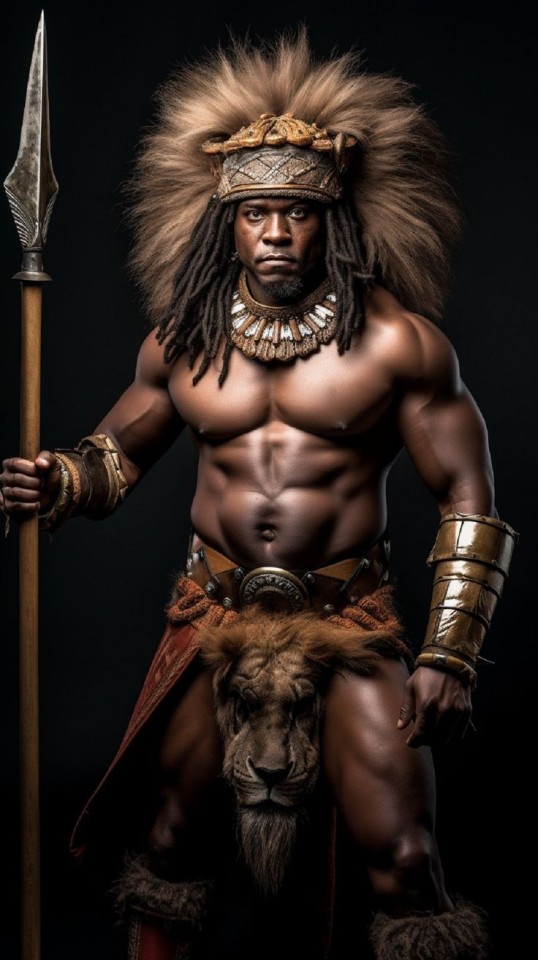#zulu kingdom
Text
You know what, it's April fool's day so I'm letting go of all my worries about how this insane rambling will look like cause IT'S TIME TO TALK ABOUT THE ZULU KINGDOM BABY
What is the Zulu kingdom? It is a African kingdom located in Austral Africa, founded in 1816 by the first king Shaka Zulu (also called Shaka kaSenzangakhona).
This kingdom stayed independent until 1879, when the Anglo Zulu war saw the British empire take control of the state, but before this, the Zulu kingdom had an enormous impact on Southern Africa as a whole, both in terms of geography, culture and warfare.
To explain this, let's go back to the foundation of the kingdom. At the time, the Zulus were not a kingdom, but a tribe. Shaka Zulu, who was one of the numerous children of the tribe leader Senzangakhona, took power after his death and set out to do numerous reforms to the way of life of the Zulus, which would turn crucial to the tribe's transition into one of the most fearsome military states of its time.
The first reforms were in weaponry: while the Zulus, like other tribes of the region, used mainly spears to fight, Shaka introduced new ways of fighting with the iklwa (an assegai which would play a role similar to a sword) and the isihlangu (a 2 meter tall cow hide shield perfect to shield Zulu soldiers from enemy spears). With those, the strategy would be to rush towards the enemy lines, who still used spears, and go into hand to hand combat where the iklwa were superior.
Shaka Zulu also introduced new military tactics, which were never seen before in Southern Africa -owning him the nickname of "the African Napoleon"-, though the one he is the most well known for is the bullhorn strategy. This tactic would separate the army in three contingents: the horns, formed of the younger soldiers whose role would be to deploy quickly and circle the enemies as to stop them from running; the chest, the main force which would then hit the enemy (in a hammer and anvil formation similar to those of Alexander the Great); and the loin, a special force staying behind and ready to intervene wherever they would be needed, wether it was finishing off fleeing enemies, helping a struggling group or assisting in the retreat.
All of this lead the Zulus to easily beat and take control of the neighboring tribes and states, in an event knows as the Mfecane (crushing in Zulu), where people would flee the Zulu menace and bring in their escape the Zulu strategies, which in turn would make them a danger to the people they were fleeing into. But not everyone fled, and a lot of tribes became integrates into Zulu society.
This is where we can see Shaka Zulu's reforms of the military to their full extent: the first thing he did with it was to organize the military into ranks based on veterance. As said before, the youngest soldiers would form the horns, and the oldest the chest. Another thing was that every group of soldier (the impi) was to be formed of men from different tribes. This way, a feeling of unity would form that would stop the conquered groups from wanting to revolt.
By doing this, Shaka Zulu created a sentiment of Zulu identity even in groups originally not Zulu, which would stay up to this day.
And that is how the Zulu kingdom came to be! Through the numerous reforms and military genius of Shaka Zulu, was born a brand new actor in Southern Africa, one that would one day inflicts to the British their worst defeat in a war of colonization- but that's for another time!
3 notes
·
View notes
Text
Queen Nandi KaBhebhe: A Mother's Story | Shaka, King of the Zulus
Queen Nandi KaBhebhe, a truly remarkable and resilient woman, left an indelible mark on history as the mother of Shaka kaSenzangakhona, King of the Zulus. Her story is one of hardship, perseverance, and unwavering love for her children. Born as a daughter of Bhebhe, a respected Elangeni chief, Nandi’s life took a tumultuous turn when she became pregnant out of wedlock by Senzangakhona, the son of…
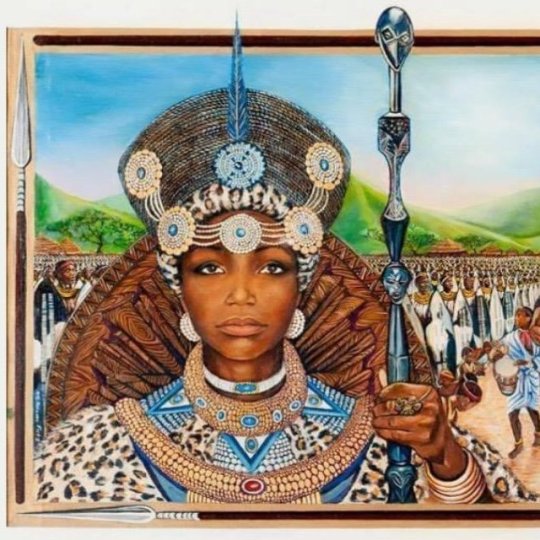
View On WordPress
#daughter of Bhebhe#King of the Zulus#Mother of Shaka Zulu#Queen Nandi KaBhebhe#South African history#Zulu History#Zulu Kingdom
1 note
·
View note
Video
youtube
Shaka Zulu & The History of the Zulu Kingdom Documentary
3 notes
·
View notes
Text
IsiZulu Version
Like, Shares and Follow
Please don’t forget to comment

View On WordPress
#History of Zulu Kingdom#IsiZulu Version#More Connection of Zulu#More Zulu Content#Soothing Words Of IsiZulu and English#Zulu Figuratives#Zulu Word of God
0 notes
Text
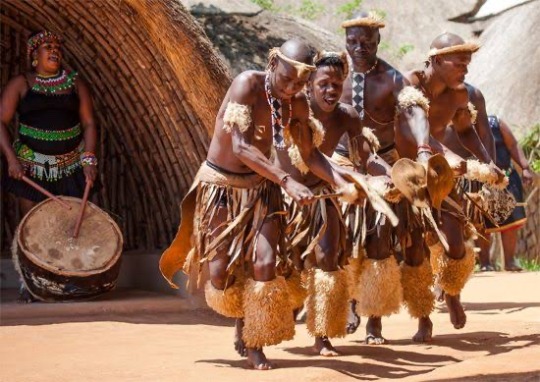
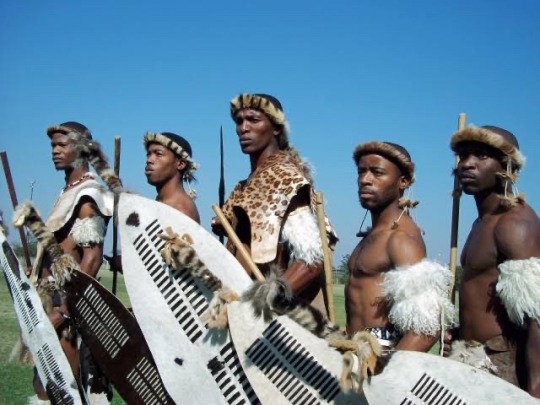
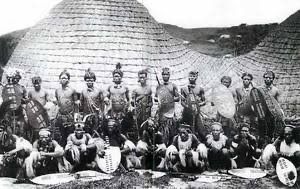
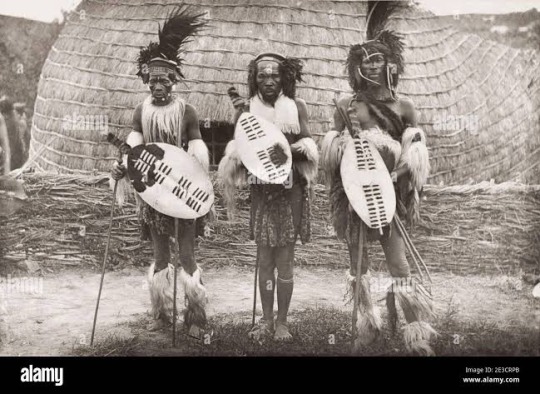

Black history is not all about slave trade
Slave trade is not just black history it’s just 10% of the history africa holds
This is a message to my black brothers and sisters in America
Today I will be talking about the Zulu tribe
The ancestors of the Zulu migrated from west Africa into southeastern Africa during the Bantu migrations from 2000 BC until the 15th century. The Zulu tribe expanded into a powerful kingdom, subdued surrounding groups, and settled in the region known as KwaZulu-Natal in present day South Africa. After enduring colonialism and overcoming apartheid, they have emerged as the dominant ethnic group in South Africa todayAccording to Zulu ancestral belief, the first Zulu patriarch was the son of a Nguni chief who lived in the Congo Basin of Central Africa. By the early 1800s, the Zulu had migrated to Natal, where they lived among other Nguni-speaking chiefdoms. There were ongoing power struggles among these chiefdoms.Around 1808, Chief Dingiswayo of the Nguni-speaking Mthethwa people led wars of conquest to end the power struggles among the chiefs in the communities surrounding his chiefdom.Chief Dingiswayo centralized power by organizing the military into age-based groups, rather than lineage-based regimens. This weakened kinship ties of the conquered communities. Chief Dingiswayo left the conquered chiefdoms relatively intact after they accepted his dominion.The Zulu developed into a distinct cultural group by the time they were conquered by Chief Dingiswayo and his Mthethwa people in the early 1800s. At that time, the Zulu were a small lineage numbering around 2,000 people led by Chief Senzangakhona.Shaka, the future founder of the Zulu Kingdom, was the illegitimate son of the Chief Senzangakhona. Shaka was drafted into the Mthethwa and became one of Chief Dingiswayo's bravest warriors. When Chief Senzangakhona died, Shaka seized the Zulu throne.Using Dingiswayo's military style of weakening kinship ties amongst warriors, Shaka controlled the Zulu community. After Dingiswayo's death, he killed the legitimate heir and installed a puppet as Chief of the Mthethwa.Before long, Shaka seized control over Mthethwa's regiments and assumed power of the newly formed Zulu Kingdom in 1818.
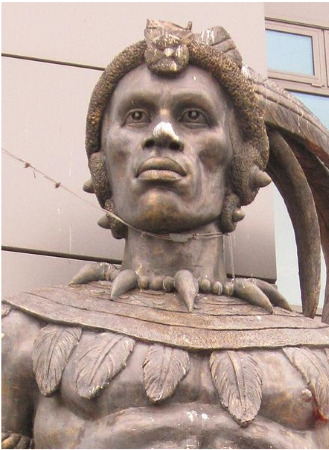
Shaka, Zulu King 1818 to 1828.
Zulu tribe facts include the following:
Shaka Day is celebrated in September by slaughtering cattle, wearing traditional clothing, and wielding traditional weapons. Dignitaries from other tribes and nations attend.
Traditionally a senior male is the head of the clan. Young men train from childhood to fight and defend the clan. Members of the clan have kinship ties based on blood or marriage.
To show respect, the Zulu do not refer to elders by their first name; they use "Baba" meaning father, and "Mama" meaning mother.
Patrilineal inheritance and polygamy are practiced in Zulu culture; having more than one wife is acceptable if one can afford it.
In Zulu culture, bride wealth must traditionally be paid in cattle. Most native groups in South Africa, including Nguni-speaking Xhosa, Ndebele, and Swazi pay bride wealth.
#life#animals#culture#black history#history#blm blacklivesmatter#heritage#africa#biden is obama's puppet#england
626 notes
·
View notes
Text
When the Europeans told Cetshwayo kaMpande king of Zulu Kingdom that Shaka Zulu organized, “If you don’t convert to Christianity you will go to hell and burn in fire”.
Cetshwayo kaMpande replied, “Around here we eat fire”
Maybe this is what he meant 👇🏾 #Africa
198 notes
·
View notes
Text
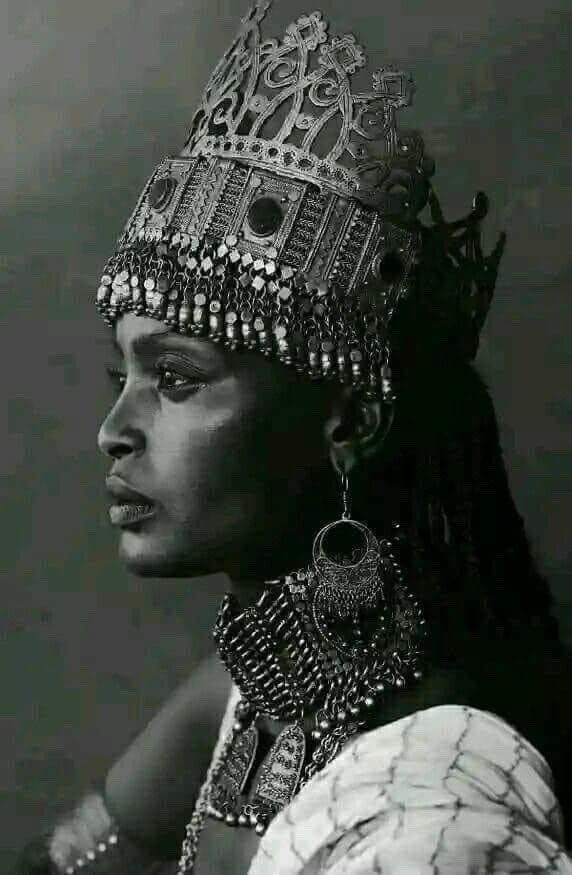
Seven Great African Queens You Should Learn About:
1)- Queen Amina of Zazzau (Nigeria)
2)- Queen Makeda of Egypt and Ethiopia
3)- Queen Kandake of Ethiopia
4)- Queen Nefertiti of Ancient Kemet (Egypt)
5)- Queen Mother Yaa Asantewaa I of Ashanti Kingdom (Ghana)
6)- Queen Nandi of Zulu Kingdom (South Africa)
7)- Queen Moremi of Ile-Ife Kingdom (Nigeria)
These Great African Queens existed, but we were not taught about them in school.
335 notes
·
View notes
Text
Okay, Shōgun was amazing. Can FX/hulu produce an African historical epic drama next? Hire African writers, actors, directors, etc and tell an authentic story set in a historical African state/kingdom/empire (Ndongo, Matamba, Mali Empire, Kingdom of Benin, the Zulu Kingdom, etc) and aimed at a global audience!
71 notes
·
View notes
Text

7 greatest African women you should learn about them.
1)- Amina of Zaria, Nigeria 🇳🇬
2)- Queen Makeda of sheba, Ethiopia 🇪🇹
3)- Queen Kandake, Ethiopia 🇪🇹
4)- Nefertiti of ancient kemet, Egypt 🇪🇬
5)- Yaa Asantewa of Ashanti kingdom, Ghana 🇬🇭
6)- Queen Nandi of Zulu kingdom, South Africa 🇿🇦
7)- Moremi of Ile-Ife kingdom, Nigeria 🇳🇬.
Thèse great women existed, but we were n0t taught about them in schoòl.
158 notes
·
View notes
Text
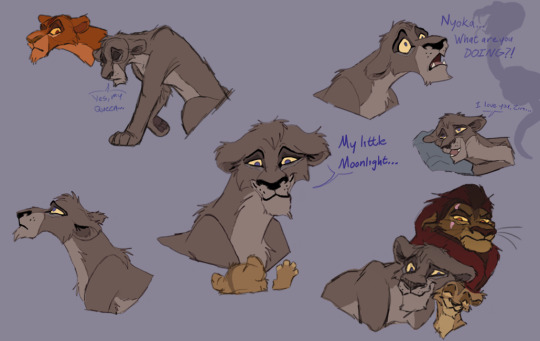
TLK: Nandi
After drawing sketches of Bianka, I felt like paying a revisit to a character I drew only one other time: Nandi. She is my fanmade mother of Zira, and mate of Nyoka (AKA the Strange Lion). Her name has many meanings in many languages. For starters, it can mean "with me" in Swahili, it's also part of the Swahili word for "nice" (full word is "Kamnandi"), it also means "sweet" or even "here I am" in Zulu, and "joy" or "happiness" in Sanskrit. All words are appropriate for her, as I've come to find out.
Nandi was not native to the Pridelands. She began her life in Pride Rock as a shy advisor to Uru. Nandi was very unlike her ruler, as she was unconfident, meek, and soft-spoken. Uru naturally possessed an intimidatingly elegant streak, but cordially encouraged Nandi with advice in order to help with her self-worth.
Nandi joined the Pridelands after the banishment of Nyoka. Her naïveté of his story is what allowed her to meet with him in secret at the Outlands with hardly a problem. Nandi was charmed by Nyoka, and was eager to have a child with him. He eventually warmed up to the idea, but internally swore not to raise the cub like a cub, but an extension of him, with the idea of integrating her into the pride to slowly take over the kingdom that once belonged to his ancestors.
They both agreed on the name "Zira" for different reasons: Where Nyoka was from, it was a word meaning "hate", where Nandi was from, it meant "moonlight", which had been perfect for a cub born at night.
Later on in her life as a Pridelander, Nandi, along with Uru, partook in mentoring the next generation of huntresses, including her daughter Zira, her classmate Sarafina, and Uru's top student, Sarabi.
However, after Nandi and Nyoka's separation relationship-wise, Zira's hunting lesson schedule would often be interrupted by Nyoka's harsh training in the Outlands. Zira took on a zealous, fiery, conflicted personality, and her hunting skills had also been affected as she would show mercilessness with prey. Nandi noticed Zira's harsh hunting strategies, bottled-up emotions, and cuts and bruises when she would return from the Outlands.
Nandi finally put her paw down, and firmly demanded that Zira cease her isolated visits with her father. This had unfortunate outcomes: Zira, as Nyoka's teachings successfully corrupted her, had turned on her mother, fully believing her mother was only slowing her growth and dragging her down. After a rendezvous with Nyoka at the Outlands, while their daughter was away, her mate threatened her using his cobra friend, Kuuma, to keep her in line and out of his and Zira's business.
Feeling threatened that Nandi would tell the Pridelanders of his threats, Nyoka sent Kuuma to deliver small doses of venom in bites he would inflict on Nandi in her sleep. Zira saw Nandi's mind decline over time the last few times she ever visited her, and Nyoka would tell Zira that Nandi had been becoming too unfit to be an influence on her. Zira grew into adulthood trying to understand which parent had been in the wrong, as Nyoka would emotionally neglect her, but she truly believed his mischaracterizing words about Nandi.
Kuuma's venom didn't directly kill Nandi, but she did eventually pass before the events of the films from possible complications.
Her granddaughter Vitani greatly resembles her, sporting square features, a head tuft, dark periwinkle eyes, and freckles above her mouth. Her grandson Nuka also resembles her, inheriting her lanky frame, ear tufts, and grayish-brown pelt. Their personalities parallel her too, such as poor self-worth and skittishness respectively.
30 notes
·
View notes
Text
The Ndwandwe–Zulu War: A Turning Point in South African History
The Ndwandwe-Zulu War of 1817–1819 stands as a significant and pivotal conflict in the history of South Africa, marking the intense struggle between the burgeoning Zulu Kingdom and the Ndwandwe ethnic group. At its core, this war was a clash of cultures, power, and survival, leaving a profound impact on the region for years to come.
The roots of this war can be traced back to the remarkable…
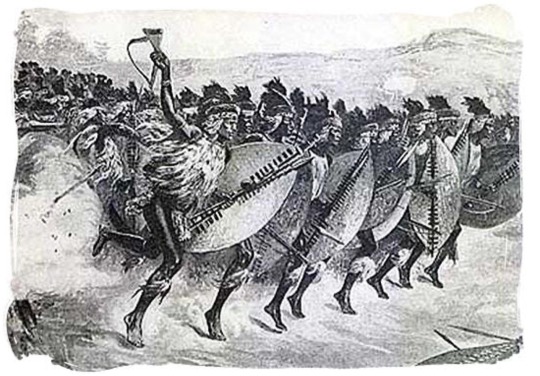
View On WordPress
#African History#Ndwandwe tribe#Ndwandwe-Zulu War#South Africa history#The Ndwandwe–Zulu War#war#War History#Zulu History#Zulu Kingdom
0 notes
Note
Since we're on a Viking bent at the moment, how did they come to be badasses within popular culture?
This is an excellent question!
I think Western pop culture has a weakness for historical warrior cultures in general - there was a big fad for samurai starting in the 70s thanks to Kurosawa films becoming crossover hits, there was a big moment for Spartans after Zack Snyder's film in 2006, there was another one for Romans between the HBO show in 2005 and the Starz Spartacus shows in the early 2010s - for complicated cultural reasons that keep historians like Bret Devereaux busy.

Vikingers had been around as a thing in pop culture off and on for decades - there was The Vikings in 1958 with Kirk Douglas and or the 13th Warrior with Antonio Banderas in 1999 - but it tended to be hit-or-miss one-offs rather than a general pop cultural trend until relatively recently. Sustained interest in Vikingers really does kind of trace back to the huge success of the History Channel show which ran from 2013-2020 - which is funny, because originally it was a pretty naked attempt to find something that would tap into the Game of Thrones audience, for all that Hirst hates the comparison- which prompted others to tap into the same audience with Assassin's Creed: Valhalla and The Last Kingdom and God of War, and so on. It's rare that one show hits big enough to cause a trend, but I do think you have to hand it to them in this case.
So why did Vikingers hit so big?
Part of it is that they come pre-packaged with visual iconography (the dragon-ships, the distinctive helmets and shields and axes, the rather inaccurate hairstyles, etc.) and mythology (Norse mythology has the virtue of being decently well-known enough that people recognize who the gods are, but not well-known enough that people complain if you make shit up that wasn't in the Eddas), so a lot of the "branding" has already been done for the creators.
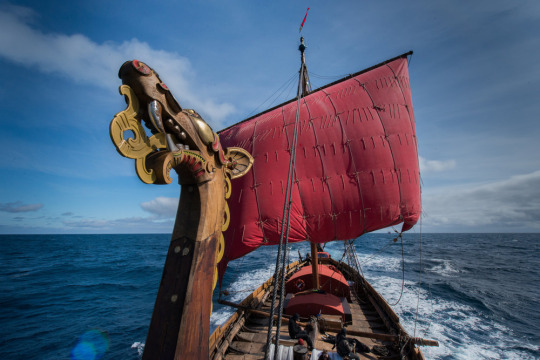
I think another big part of it is that Vikingers kind of act as a cultural Rorschach test that allows people to see what they want - you can go all the way along the spectrum from right-wing Neo-Nazis seeing them as Aryan supermen destroying Western decadence through the will to power to left-wingers thinking that the Vikingers were progressive because they were relatively gender-egalitarian and didn't like Christians very much.
And finally, I think that Vikingers have the benefit of being far enough back in history and niche enough a historical subject that it disarms a lot of people's critical faculties. Here's what I mean -thanks to decades of historical research and activism, more recent and prominent examples of slavery and/or colonialism no longer make for protagonist fodder in pop culture. There's a reason why Benioff and Weiss' "Confederates Win" tv show got canned before it started, and there's a reason why something like Zulu could not get made today (and that's a good thing). But just like the Spartans after 300, the Vikingers are seen as "ancient history" and because their oppression was visited on white people rather than POC, you can show them raiding Lindisfarne and colonizing a third of England (although you'll notice showrunners generally leave out the trans-continental slave trade) without anyone asking if this is problematic.
49 notes
·
View notes
Text
I'm too lazy to make it rn but like imagine the neutral row in a D&D alignment table, label it "fantasy worlds where the societies clearly stem from irl cultures", and that goes as follows:
lawful neutral: Ranger's Apprentice, where the kingdoms are all 1:1 to an irl country lol. araluen is fantasy!england, galllica is fantasy!france, nihon-ja is fantasy!japan etc.)
true neutral: Pale Lights, where cultures are all pretty identifiable but not necessarily 1:1, so Tianxi being pretty obviously late-Qing early-Republic era China, but Peredur having a variety of influences/being analogous to a few diff groups (Wales/Zulu?/Sicily???*)
chaotic neutral: Wheel of Time, where the books snort a massive line of cocaine like (in the tone of voice of this tiktok) so we have fantasy greece-netherlands, fantasy japanese-irish-bedouin people, [...] AND fantasy imperial-china/japan-texans YEEHAW
I haven't actually gotten very far into wot yet (I'm on book 2) I'm basing this off of the memes I've seen
#my rambles#books#ranger's apprentice#pale lights#wot#*because aesthetically malan seems p r e t t y analogous to Italy and going off of my (very thin) knowledge of european history I'm#pretty sure that makes peredur sicily?#10n
20 notes
·
View notes
Text
How Europe underdeveloped Africa and its legacy
first and formost before i break this down, this is not a post for white people to express their guilt, or savoir complex or love of historical revisionism. you'll not just be blocked, you'll go on a block list on this post, don't do it to yourself, i wont even have to be the one to do it. secondly this is a covering of the broad themes, lessons, and understanding within the book and what we should learn from it. third, i will often talk from my own perspective from which i will round to a larger context.
part 1- history and anthropology
As someone who has grown up black in the us, i grew up with a particular understanding or idea of Africa, the slave trade and the way America and Europe came about. you hear about tribal or ethnic disputes in the context of modern Africa and hear quite a lot of blatantly racist things about Africans. which caused me to get very into history, to which you learn when it comes to Africa there's not a lot of great places to start. this is something quite similar to the various indigenous peoples of the Americas as well. this has always been presented to me as a fault of Africans for not having history and is a long standing idea of white intellectuals from the 1800s to the Joe every man of today. the truth is Africa has history, there's no land, that has no history and Europe just devalues histories not associated with itself. there's a absolute glut of kingdoms, empires, languages, historical traditions, governing styles, cultural roles, trade networks etc etc. the fact of the matter is, that there's just very little Europeans want to learn about Africa that isn't to colonial ends, even today.
This is something Walter covers in great detail, to such a point that even as someone that has been purposely elbows deep into listening to everything i can find on African history i still had to go look up various pre-colonial kingdoms and figures. there is not a region of Africa that he doesn't take time to address in at least some detail, from Oyo and Ashanti on the west African coast, to the north of the Maghreb with Morocco and Algeria, east to the great lakes region, the horn of africa and south to the Zulus, koi koi, and Nguni peoples and kingdoms. The extensiveness to which he covers material forms of production, trade, and methods of historical preservation of culture, the types and breath of items, created and traded all through like cloth, glass, iron working, artistic ventures like bronze sculptures of benin and food production and cultization and the formations of various styles of rule, early democracy, and other such information put to bed nearly all of the non-nonsensical ideas that africa was a grand continent without progress, innovation, or skills and everything great, large, or more complex than rubbing to sticks together came from europe or arabs.
The book delves quite deep into the mythology of intense african slavery and violence which would be later used by europeans to justify colonization of africa to each other, said colonization, i will swing around back to much as the book does.
The middle passage, the triangle trade, the atlantic slave trade, these are all names for the event that was one of the chief reason to the economic and scientific take off of europe that would lead to industrialism, with the other being the colonization of the americans. stolen land and labor pushed the european world from not much a concern to anyone but those who had to deal with the crusades to the paramount power that controlled nearly all the sea trade, and held large swaths of territories of the world. we all know most of that, but walter ask the question on the other side of that coin. what did the slave trade do to africa? and why did they participate? the short answer is it changed the entire way african economies functioned and lessened the possibility of growth not just of kingdoms over territories, but of production and developement of sectors such as iron working, glass making, and agriculture. and in a very literal sense was one of the earliest forms of the phenomenon known today as brain drain and depopulation. we quite literally will never know the amount of people stolen or killed for slavery, we only know that as the rest of the world experienced high population growth africa and the americas started to experience intense depopulation. these phenomena weren't incidental they were known, and admitted as purposeful by figures qouted in the book. The african leaders at the time how ever were stuck between a rock and a hard place, many noted not just the importance of guns, but also recognized the importance of population growth at the onset. the game however being rigged from the start would have taken a miracle to over come. japan was the one country to escape colonialism in most meaningful senses, and that was because the dutch taught them how to produce guns and would trade with them "almost" as equals. these are also things addressed by rodney, the sale of arms was often highly lopsided, with Portugal and dutch traders only being willing to trade badly produced or broken guns, low quality powder and shot for slaves. this would not change until europeans would learn of other african products that they could make us of in their markets as raw materials such as ivory or kola nuts, this change would not happen for quite a while and mainly after the Europeans had already built their industrial bases and had taken total control of trade routes and begun to flood African markets with "cheap" products. the combinations of factors both purposeful and accidental shifted the African economies into a near total reliance on Europe economically and militarily but not yet politically. these are all expertly researched and explained to a point it is nearly impossible to refute any points. This points are all also something i can confirm from nearly every single source that ive looked into on African history.
part 2 -colonial "development"
This is a portion of history ill admit to doing my best to stay away from, generally much of my knowledge on it till this book has been on what happened with various kingdoms that fell in the late 1800s and early 1900s or by the various oral and 3rd hand accounts of what peoples familes, parents and even political elites went through. ill be frank, i did not go into the depth of the horrors of what happened with slavery, slave raiding, and its secondary effects, for this section and the next ill have to go through quite a lot. ill try to tone it down as best as i can, but on some of it even the implied parts are going to be horrid. I believe it is however important to face those head on, to truly understand the so called "white mans burden" or the reality of what that meant was.
colonialism meant making the final step, taking africa politically and physically. europe made the leap whole heartly to take all of africa, land, people, and any potential valuables, resources and to exploit everything they could get their hands on to the fullest extent possible. i do not use anything in the prior sentence lightly. Europeans like to play word games and often, the idea that they ended slavery in any meaningful sense is false, and ill come back to that in the final section. during the period of colonial control europeans destroyed just about anything of the prior rulers they could, and stole anything they could. theres a likelihood in my mind that theres many and african sculpture, painting, and cloth or glass work that sits in the home of a collector that got rich off the stolen plunder of africa. these includes many villages, cities, and palaces and shires and places of worship and places of craft. whole cities were destroyed such as kumasi, taking with it histories, architectural stylings and methods of production.
during this period was the final shift from internal political and economic growth to purely serving the empires to which ones lands belonged. no longer would rulers push for education reforms or challenges on religious bodies to strengthen any part of the nation, it was a total transformation into a form of state slavery. this is as metaphorical as literal, europeans would begin to change agriculture to be primarily centered around cash crops and mining labor to which labor was forced. people were made to pay taxes in the modern sense through the wages made through said labor. these taxes were in turn used primarily to fund the upkeep of oppressive forces and funding the check books of colonial governors, an insanely tiny portion of these funds were used for anything besides extracting wealth and resources.
the various governments put little to no money, research, or development into anything but cash crops and pulling things out the ground. the only times they put money into schools, training or even medical resources for people in African, it was for better wealth extraction and always the bare minimum. i believe (don't have the book in front of me rn) west Africa (from west of chad and south of Algeria) only had one university until the late 50s. the industrial sector of Africa was near completely killed, Africans in settler areas were not allowed to own even small scale industrial machinery such as cotton gins or fruit oil extraction machines, in non-settler state areas generally only peoples brought into Africa for the purpose of being a separated class of petite boug representatives for the colonizers were allowed to own industrial machinery. electricity was mostly for those same classes of individuals, hospital access, education access, pretty much anything you need for a community to survive esp in the modern era was highly restricted from Africans. To say that Europe "developed" Africa in any sense is beyond a bold faced lie, and it was something ,Rodney points out, that Europeans were quite proud of until they started to face push back for the level of humanity and exploitation they were facing. Once they started to get pushed out they changed their tune to the lie of African development and modernization. just like the lie of ending slavery for moral reasons and invading Africa to end slavery. Speaking of ending slavery in Africa, Rodney points to several figures who openly gloated about how they ran their colonial post or corporate holdings as slave plantations. king Leopold is one of the more famous examples of it, but far from the only one, many took delight in their cruelty. famine became endemic in regions that were the origins of many foods and cultivates crops, as all the agricultural process that could be shifted to cash crops were. Roads and trains ran from the mines and plantations to the seas and very little else. Various things needed to export raw materials were built with slave labor, like a airport in Kenya built by hand, no machinery via forced labor of Kikuyu peoples
Europe's only goal in Africa was land and profits, the same as in the Americas. genocide, slavery, starvation campaigns were common tools of colonizers in Africa all the way up to today, which i will re-address in part 4.
part 3 - education, traditional and political
Education is a very clear and important part of modern life, but also for building a nation, and self dependence, so it is of no wonder than colonizers thought that it should be restricted in Africa in regards to Africans. The various quotes and framing that Europeans used to dismiss the idea that Africans should have access to any form of formal education sounds exactly like quotes pulled from the most vicious of slavers of the prior centuries in the US and Haiti. One of the most prominent ideas that was education would "spoil" Africans, was a sentiment was also expressed by slavers. this section of the book is very much facts and figures on just how little access to education there was, how little funding went into it vs the amount of profits coming out of the various regions as well as how this was over come. two of the prime ways that was done according to the book and much of what Ive heard prior, was through the use of missionary schools or independent schools. These schools were primarily funded not by the colonial governments but by the peoples seeking education, their families, and so on, with the expectation that those educated would teach the rest of the family. education how ever was shown to not really pull people out of poverty nor to really give African peoples the possibility of positions of power or influence. this was such a near universally a rule, Amilcar Cabral, revolutionary leader and agricultural engineer even spoke to his personal experiences with being educated far beyond the man in charge of him yet having zero say in his job, his boss was renownly a dumb man. This was not an uncommon thing. Rodney goes well into it, and this just exemplifies how Europeans only saw Africans as a source of cheap and "unskilled labor". Access to education even if funded by the peoples seeking education themselves was clamped down on sharply once revolution was on the wind. Those who know the patterns of history though would have known that the clamping down made that worse, it simply accelerated the wants for education, as well as for independence.
part 4 - modern Africa and modern euro/america
When the cards started to fold on empire they took many different routes to lessen the fall for power, France tried blowing thing up and killing cattle and destroying things needed for civil life, a all call for genocide against Algerians. Britian, Portugal, most of them tried the same things, but they were pushed out in some ways, and when that became obvious they turned to the small group of political insiders they rapidly trained to take over in their stead. for those that weren't under the control of the colonizers they turned to the coup and military dictatorship. very few of the revolutionary leaders of africa were able to stay in power, many turned toward methods some would call authoritarian. without the context of what was going on and how unstable the situation was for these leaders and just how quickly and violently these revolutions could be overturned, it would be easy to take these figures as just becoming despots without reason, some of them really did become despots who just started functioning as neocolonial cops. This brings us to the modern era, and the current method of colonialism not just in africa but much of the world, Neocolonialism, or as i like to call it "home rule".
European nations were not ready to give up control, but they decided they would be willing to give up the appearance of direct rule. economic decisions, the political direction of countries, borders, very little of the modern africans situation was not directly decided on by europeans or americans. financial institutions such as the world bank and IMF lend these governments that had to try and start building actual nations with functioning economies loans with interest rates they would not be able to pay back in time, with conditions that made it even hard to meet the internal goals or pay back the loans and additional conditions of economic control by the IMF for failure to pay these loans. colonial governments such as France forced nations like Mali to pay taxes till recently, and nearly all the colonial powers set the trade rules between them and their "former" colonies in Africa. very few leaders were able to chart much of a path for progress or development that met the needs of the people before these various things snatched much of the independence back away from the people, pushing Africa away from shifting toward an agricultural sector that feed the people and an industrial sector capable of growing the economies or a scientific sector able to make adjustments or provide notable push in any direction. Fifa has more say in policy when they decide to host in a country than the people or even large segments of the governments of Africa. Nkrumah and Rodney both in their respective titles showcase this well, however neither would live to see much past the end of overt colonial rule.
Today there is a larger push against neocolonial rule and economic control than prior, organizations such as BRICS, china's one belt one road policy, and smaller grass roots works and various coups have shifted us to a different situation in Africa than what it has been in for the last 80+ years. However this is not a wholly different situation to that my grandmother would have heard of. much of the continent is still very much under euroamerican influence, the us of slave labor or near slave labor conditions is still a significant factor in the economic relationship between Africa and its former colonizers, which is seen very strongly in the Congo and in coco production. Africa is still yet to industrialize in a manner that matches its needs and this is generally at the behest of its colonizers, and in the majority of the continent the colonial capitalist ventures still own land and resources they stole and murdered their way into, settler property relations have also been solidified in places like south Africa. i would believe that Rodney would say that say that Africa still has a long way to go if he was still around.
The themes of the book were quite complex, and it was refreshing in many ways to be presented with such a sober look into Africa. Read the book, understand what its saying and try to use a similar level of consciousness, nuance, and thought in your day to day analysis of the world around you, and we may have a chance at fixing this ship.
To depart from the contents of the book, i would like to address the white man in the room. Europe, its role in history and its modern role in history, like I've said at the top, not time or place for white people tears. I'm going to be brutally honest, and I'm going to combine the thoughts and finding of not just Nkrumah and Rodney, but also figures like Fanon, Malcom X, Kwame Ture,Rev Martin Luther king Jr and many others of the course of Africana histories and philosophies.
Europe, more particularly Western Europe, has spent the last few hundred years visiting horror on horror on the world, when it comes to the modern era, they simply have not stopped. the damage Europe as a bloc has done, much like the amount of people who were enslaved or killed for the slave trade, will never be full accounted for and that tab just keeps growing. There is no sign of it slowing or stopping. Empires don't like to stop existing, this is something those interested in history know very well. The problem is that Europe cannot be honest nor up front about this, be it the League of nations or the EU and America, or even in the face of the UN, Europe and its Settler states it spawned is just as addicted to domination and profit seeking at all cost as it was 100 years ago which was no different when the slave trade began. Europeans/ White people as a whole as still strongly in the belief that they have a moral high ground to speak to the rest of the world when the truth of the matter is for nearly 500 years, white peoples flying European flags have been histories biggest villains. even in the 21st century, Europe's role on the world stage has been that of a vampire. sucking the life from others to sustain itself. it is still violently racist and xenophobic, which is ironic for peoples who have literally invaded the vast majority of the world, nor is it any more moral or upright today than on the eve of colonialism in the Americas or Africa or any other portion of the world. the EU can barely come together today to denounce blatant acts of genocide and white people are finger waging about anti-LGBT laws in places they couldn't point to on a map (im not happy about anti-lgbt shit, im trans bi and poly this shit actually tears me up). Europeans and their settler offshoots boast about the safety of their cities while actively being the cause of the violence elsewhere. This is all to say Europes fucking evil ya'll, which we should all know at this point, but to further it, they aren't really going to stop as that's what its designed to be. these nations aren't going to suddenly produce radical leaders who are going grow morals or empathy and compassion and move us closer to a just world and fight climate change and help develop the global south or anything like that unless some extreme changes happen, not just among the ruling classes, but the everyday person because like i noted, its policies are racist and colonial and imperialistic, but that really only last not just because people aren't willing to guillotine people over it, but because a substantial enough portion of the populace that they care about are happy to be that way or are passive about the suffering of black or brown people or poor people. they will accept the idea the x group of brown people are homophobic or terrorist( never questioning what terrorist even means) and accept that they should constantly be bombed or killed or have their land and resources stolen, which if people cant see the parallels to the largest slaving nations going and invading under the guises of ending slavery and the nations the mainstreamed homophobia across the world and did acts of political terror across the globe going and claiming those are valid reasons to do what they do idk how to help you. your average white American or European is truly no more curious or wanting to actually learn and have dialog about African cultures than isrealis are about Arab culture, nor are they any less willing to throw white supremacist ideas about these peoples onto them. Those last things are not problems i really know how to solve because we are constantly shown even in internet spaces the white supremacist notions of the "other" will animate people into heinous actions, harassment, doxing campaigns, etc without POC even having to say a word against people. Unless White people yes in the monolithic have a substantial cultural and economic shift, you'll keep producing hitlers and leopolds, guilt will not push you, your nations, or your friends and families into a more positive role.
if it could, slavery would have done it, colonialism would have done it, the holocaust etc. you guys have to change, you must . Peace.
#black liberation#colonization#indigenous liberation#world of the oppressed#pan african#the colonized#politics#save for later#how europe underdeveloped africa#walter rodney#liberal hypocrisy#fascisim#scratch a liberal and a fascist bleeds
7 notes
·
View notes
